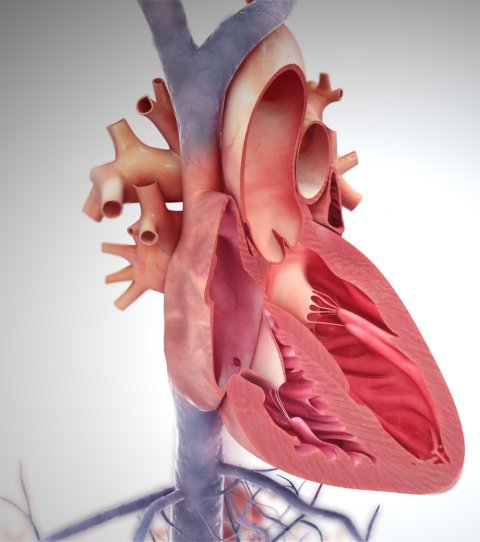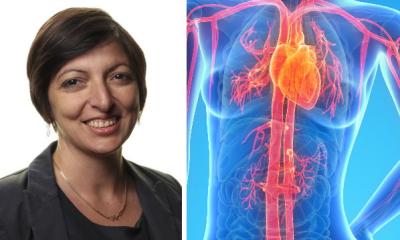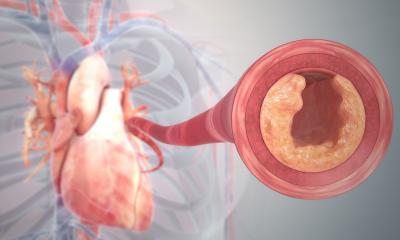News • Heart attacks, heart failure, stroke
COVID-19’s cardiovascular complications
COVID-19 can cause serious cardiovascular complications including heart failure, heart attacks and blood clots that can lead to strokes, emergency medicine doctors at the University of Virgina report in a new scientific paper.
They also caution that COVID-19 treatments can interact with medicines used to manage patients’ existing cardiovascular conditions. The new paper from UVA Health’s William Brady, MD, and colleagues, which has been published online by the American Journal of Emergency Medicine, aims to serve as a guide for emergency-medicine doctors treating patients who may have or are known to have COVID-19. The authors note that much attention has been paid to the pulmonary complications of COVID-19, but less has been said about the cardiovascular complications that can lead to death or lasting impairment.

Image source: Scientific Animations, Inc. (CC BY-SA 4.0)
“In writing this article, we hope to increase emergency physicians’ knowledge and awareness of this new pathogen and its impact on the cardiovascular system,” said Brady, of UVA’s Department of Emergency Medicine. “As we encounter more and more patients with COVID-19-related illness, we are increasing our understanding of its impact on the body in general and the cardiovascular system in particular. The rate of learning on this area is amazingly rapid. Information continues to change weekly, if not daily.”
Heart failure is a particular concern in patients with COVID-19. One study, the article authors note, found that almost a quarter of COVID-19 patients – 24% – were suffering acute heart failure when they were first diagnosed with the coronavirus. (This doesn’t mean that 24% of all COVID-19 patients will suffer heart failure. The authors state that it remains unclear if the heart failure was the result of COVID-19 specifically or if the virus was worsening undiagnosed heart failure.) Of the patients with heart failure, nearly half were not known to have high blood pressure or cardiovascular disease.
As we gain more experience with this new pathogen, we realize that its adverse impact extends beyond the respiratory system
William Brady
The paper also notes that COVID-19, and other diseases that cause severe inflammation throughout the body, increase the risk that fatty plaque built up in the blood vessels will rupture, leading to heart attacks and stroke. Influenza and certain other viruses have been associated with increased risk of plaque ruptures within the first week after the disease was diagnosed, the authors state in their review of the available COVID-19 medical literature.
Finally, the authors describe potential drug interactions in COVID-19 patients. For example, the highly publicized malaria drug hydroxychloroquine can interact with medications designed to regulate heart rhythm, in addition to causing heart damage and worsening cardiomyopathy. Remdesivir, an antiviral that is the only COVID-19 treatment authorized by the FDA, can cause low blood pressure and abnormal heart rhythm. It’s important for doctors to bear these interactions in mind when treating patients with COVID-19, the authors note. “As we gain more experience with this new pathogen, we realize that its adverse impact extends beyond the respiratory system,” Brady said. “We will continue to learn more about COVID-19 and the most optimal means of managing its many presentations.”
Source: University of Virginia
20.05.2020











